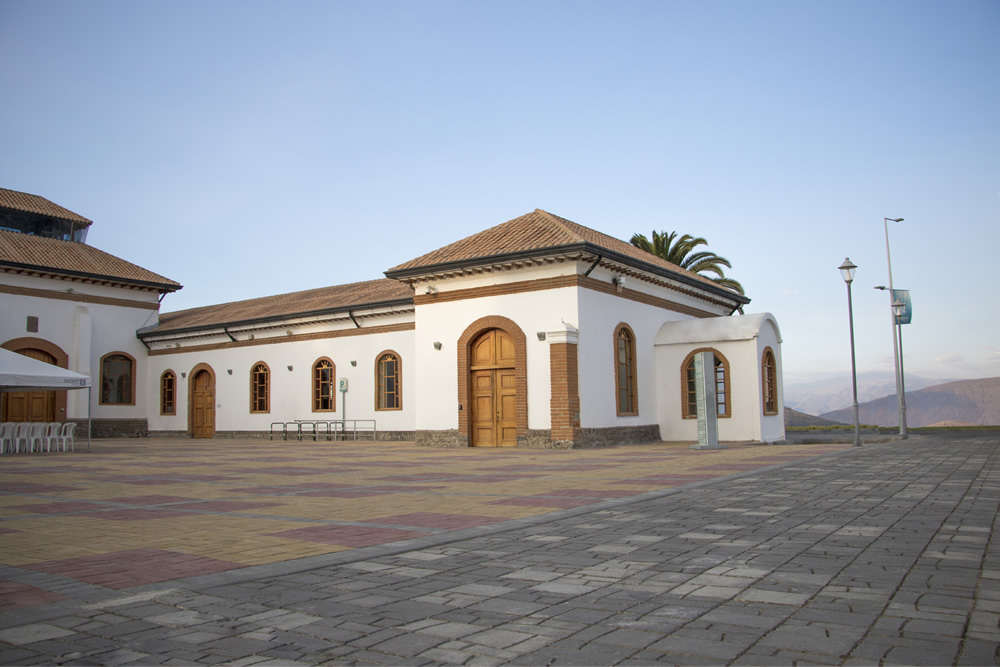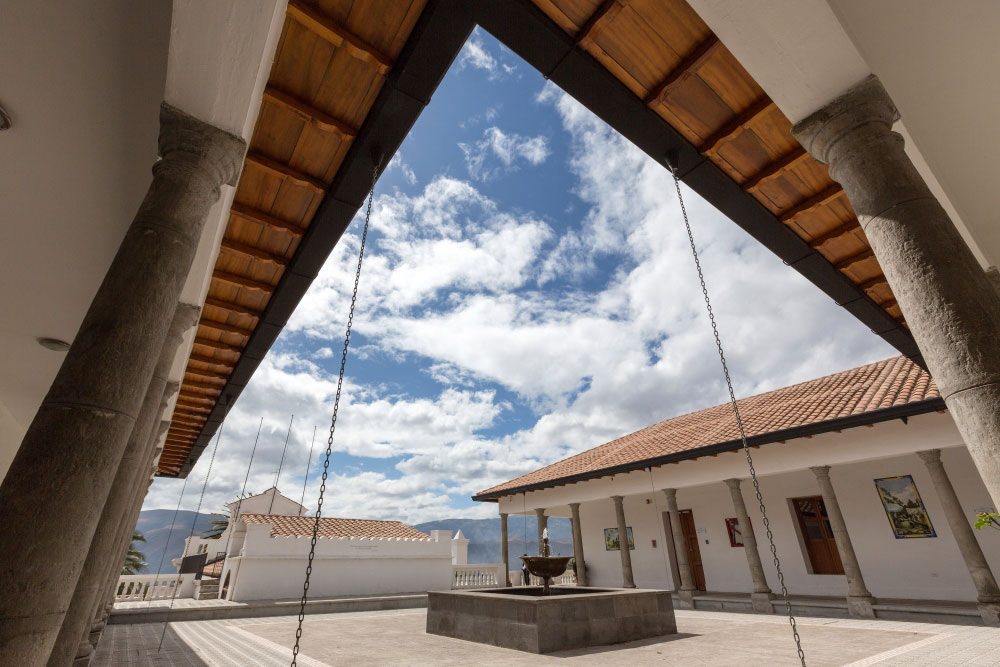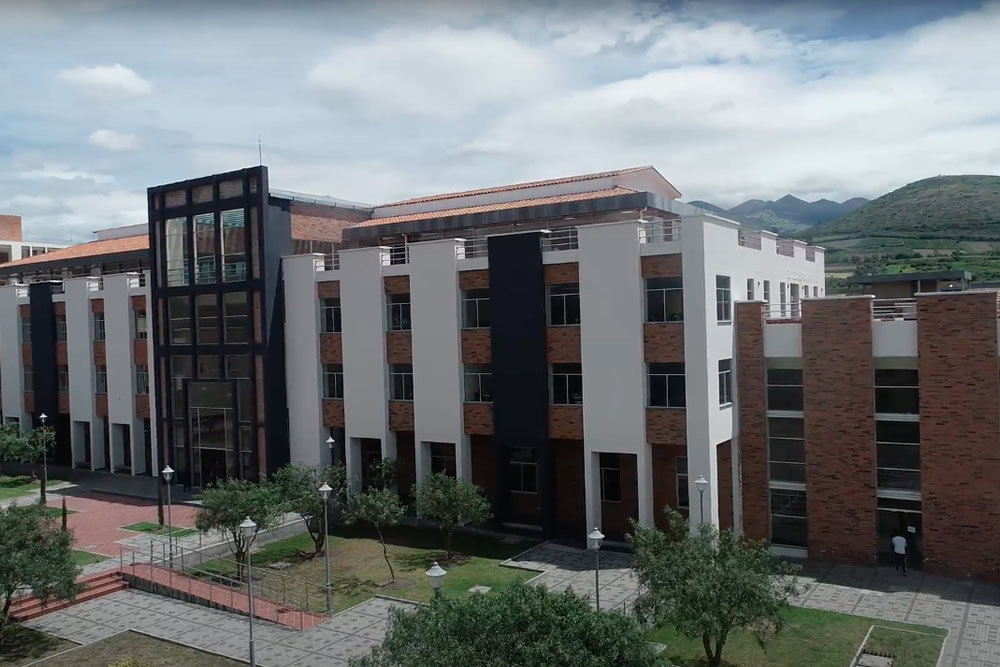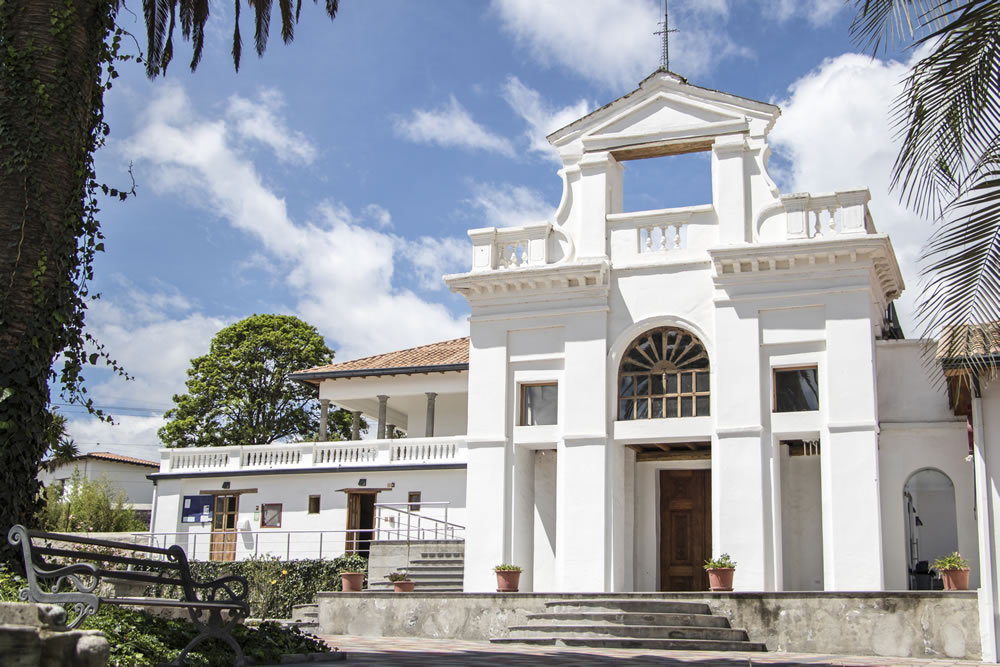Effect of rice husk SiO2 on the thermal and mechanical properties of PLLA/PEG/SiO2 composites / Johanna Belen Morales Carrera ; tutor Alicia Estela Sommer Marquez
Tipo de material: TextoIdioma: Inglés Idioma del resumen: Español Fecha de copyright: Urcuquí, 2022Descripción: 64 hojas : ilustraciones (algunas a color) ; 30 cm + 1 CD-ROMTema(s): Recursos en línea: Nota de disertación: Trabajo de integración curricular (Ingeniero/a en Polímeros). Universidad de Investigación de Tecnología Experimental Yachay. Urcuquí, 2022 Resumen: This study investigated the effect of rice husk SiO 2 on the preparation of Poly(L- lactic acid)/SiO 2 (PLLA/SiO 2 ) and Poly(L-lactic acid)/SiO 2 /Poly(ethylene glycol) (PLLA/SiO 2 /PEG) composites by the melt extrusion method. SiO 2 was obtained from rice husk incineration and mixed with PLLA preparation involves the use of various concentrations (5,10, and 15 wt%). At the same time, PLLA/SiO 2 /PEG composites used PEG with a molecular weight of 6000 g/mol with various concentrations (0, 3, 5, 10 wt%) and 10 wt% SiO 2 . The sample morphology was studied by scanning electron microscopy (SEM) to analyze the surface morphology and miscibility of PEG in PLLA and the dispersion of SiO 2 in the polymer matrix. A differential scanning calorimetry (DSC) study was used for non-isothermal and isothermal analysis of all the samples. The composites' thermal stability was studied using thermogravimetric analysis (TGA). Melt rheology analysis was used to investigate the viscoelastic behavior of the composites. Mechanical properties of the composites were evaluated at room temperature using an Instron 5565 universal machine and Blue Hill software. In order to corroborate the results of crystallization obtained in DSC, X-ray diffraction analysis (XRD) was used. Finally, gas permeation measurements were carried out using a variable pressure (constant volume) method to analyze the permeability behavior of samples to CO 2 , CH 4 , O 2 , and H 2 . The final results demonstrated that SiO 2 particles reduce the chain mobility of PLLA, which slows the crystallization process, raises Young's modulus, thermal stability, and viscosity, and decrease its gas permeability. However, adding PEG to the composites caused their crystallization rate to rise even higher than pure PLLA (>40%), increasing its elongation at break (>26%) and increasing the polymer's flexibility. Due to improved silica dispersion in the polymeric matrix and increased PLLA chain mobility, the material's viscosity and gas permeability (>50%) improve with the addition of PEG.
TextoIdioma: Inglés Idioma del resumen: Español Fecha de copyright: Urcuquí, 2022Descripción: 64 hojas : ilustraciones (algunas a color) ; 30 cm + 1 CD-ROMTema(s): Recursos en línea: Nota de disertación: Trabajo de integración curricular (Ingeniero/a en Polímeros). Universidad de Investigación de Tecnología Experimental Yachay. Urcuquí, 2022 Resumen: This study investigated the effect of rice husk SiO 2 on the preparation of Poly(L- lactic acid)/SiO 2 (PLLA/SiO 2 ) and Poly(L-lactic acid)/SiO 2 /Poly(ethylene glycol) (PLLA/SiO 2 /PEG) composites by the melt extrusion method. SiO 2 was obtained from rice husk incineration and mixed with PLLA preparation involves the use of various concentrations (5,10, and 15 wt%). At the same time, PLLA/SiO 2 /PEG composites used PEG with a molecular weight of 6000 g/mol with various concentrations (0, 3, 5, 10 wt%) and 10 wt% SiO 2 . The sample morphology was studied by scanning electron microscopy (SEM) to analyze the surface morphology and miscibility of PEG in PLLA and the dispersion of SiO 2 in the polymer matrix. A differential scanning calorimetry (DSC) study was used for non-isothermal and isothermal analysis of all the samples. The composites' thermal stability was studied using thermogravimetric analysis (TGA). Melt rheology analysis was used to investigate the viscoelastic behavior of the composites. Mechanical properties of the composites were evaluated at room temperature using an Instron 5565 universal machine and Blue Hill software. In order to corroborate the results of crystallization obtained in DSC, X-ray diffraction analysis (XRD) was used. Finally, gas permeation measurements were carried out using a variable pressure (constant volume) method to analyze the permeability behavior of samples to CO 2 , CH 4 , O 2 , and H 2 . The final results demonstrated that SiO 2 particles reduce the chain mobility of PLLA, which slows the crystallization process, raises Young's modulus, thermal stability, and viscosity, and decrease its gas permeability. However, adding PEG to the composites caused their crystallization rate to rise even higher than pure PLLA (>40%), increasing its elongation at break (>26%) and increasing the polymer's flexibility. Due to improved silica dispersion in the polymeric matrix and increased PLLA chain mobility, the material's viscosity and gas permeability (>50%) improve with the addition of PEG.
| Tipo de ítem | Biblioteca actual | Signatura | Copia número | Estado | Fecha de vencimiento | Código de barras | Reserva de ítems | |
|---|---|---|---|---|---|---|---|---|
 Tesis
Tesis
|
Biblioteca Yachay Tech | ECQI0140 (Navegar estantería(Abre debajo)) | 1 | No para préstamo | T000505 |
Trabajo de integración curricular (Ingeniero/a en Polímeros). Universidad de Investigación de Tecnología Experimental Yachay. Urcuquí, 2022
Incluye referencias bibliográficas (páginas 48-55)
Trabajo de integración curricular con acceso abierto
Texto (Hypertexto links)
This study investigated the effect of rice husk SiO 2 on the preparation of Poly(L- lactic acid)/SiO 2 (PLLA/SiO 2 ) and Poly(L-lactic acid)/SiO 2 /Poly(ethylene glycol) (PLLA/SiO 2 /PEG) composites by the melt extrusion method. SiO 2 was obtained from rice husk incineration and mixed with PLLA preparation involves the use of various concentrations (5,10, and 15 wt%). At the same time, PLLA/SiO 2 /PEG composites used PEG with a molecular weight of 6000 g/mol with various concentrations (0, 3, 5, 10 wt%) and 10 wt% SiO 2 . The sample morphology was studied by scanning electron microscopy (SEM) to analyze the surface morphology and miscibility of PEG in PLLA and the dispersion of SiO 2 in the polymer matrix. A differential scanning calorimetry (DSC) study was used for non-isothermal and isothermal analysis of all the samples. The composites' thermal stability was studied using thermogravimetric analysis (TGA). Melt rheology analysis was used to investigate the viscoelastic behavior of the composites. Mechanical properties of the composites were evaluated at room temperature using an Instron 5565 universal machine and Blue Hill software. In order to corroborate the results of crystallization obtained in DSC, X-ray diffraction analysis (XRD) was used. Finally, gas permeation measurements were carried out using a variable pressure (constant volume) method to analyze the permeability behavior of samples to CO 2 , CH 4 , O 2 , and H 2 . The final results demonstrated that SiO 2 particles reduce the chain mobility of PLLA, which slows the crystallization process, raises Young's modulus, thermal stability, and viscosity, and decrease its gas permeability. However, adding PEG to the composites caused their crystallization rate to rise even higher than pure PLLA (>40%), increasing its elongation at break (>26%) and increasing the polymer's flexibility. Due to improved silica dispersion in the polymeric matrix and increased PLLA chain mobility, the material's viscosity and gas permeability (>50%) improve with the addition of PEG.
Textos en inglés con resúmenes en español e inglés
No hay comentarios en este titulo.



